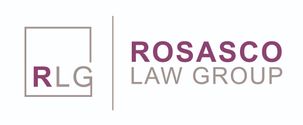Employer Alert: Exempt Employee Wage Increase Starting January 1

Earlier this year, we reported on California’s minimum wage increase for employees beginning January 1, 2026. The Department of Finance calculated a 2.49% increase to $16.90 per hour, rising $.40 from the 2025 rates. Keep in mind this hourly pay is the new basic rate for many employees, however, certain industries such as fast food and health care, are already subject to higher hourly rates, along with workers in various local jurisdictions in the state.
But how does this affect employees falling under the professional, executive, and administrative exemptions? The minimum wage increase for nonexempt employees directly correlates with the salaries of exempt employees as the calculation of their salaries is based off of the minimum wage amount. Thus, also starting in the new year, exempt employees will see their minimum salaries increase to $70,304 annually (or $1,352 per week) from the previous $68,640 per year. On an hourly basis, this works out to be twice the state minimum.
The computer professional exemption has also been adjusted by the Department of Industrial Relations effective January 1, 2026, to $122,573.13 annually ($10,214.44 monthly or $58.85 per hour) — a 3.3% increase over 2025 rates.
Those employees who are required to supply their own personal hand tools will see their hourly rate increase from $33.00 to $33.80.
Here are some key takeaways for employers:
- Re-evaluate all exempt positions: Review each employee classified as exempt to ensure they still meet both the salary and duties tests for the executive, administrative, or professional exemptions.
- Update salaries to meet the new threshold: For 2026, the minimum salary threshold for most exemptions is $70,304 annually, based on the $16.90 hourly state minimum wage.
- Check local and industry-specific laws: Be aware that some cities have their own minimum wage rates that are higher than the state's. Also, note that the minimum wage for some industries, like fast food, are subject to different and specific rules.
- Consider the impact on commission-based employees: The new minimum wage also affects the salary basis for some commission-based exemptions. Ensure compliance with rules like those for commissioned sales employees, who must meet specific earnings thresholds.
- Prepare for potential ripple effects: Minimum wage increases can create pressure to raise pay for other employees to maintain internal pay scales.
- Update policies and train staff: Update all relevant workplace policies to comply with the new regulations and train management and human resources staff on the changes to ensure they are implemented correctly.
- Understand potential liabilities: Failure to comply with wage and hour laws can result in significant penalties, such as liability for back pay and statutory penalties.
Questions about the wage increases or any other changes moving into 2026? Contact Rosasco Law Group for all of your workplace needs – we are here to help!




